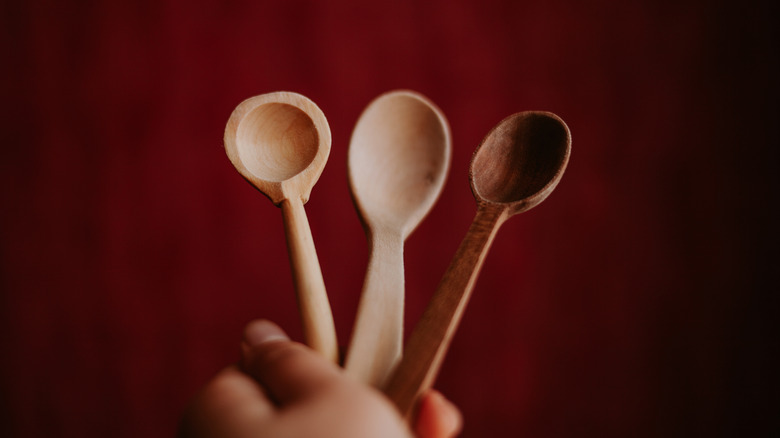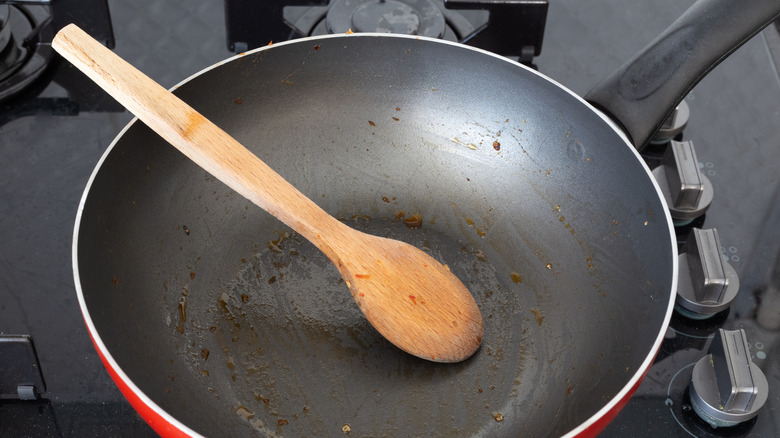The Major Food Contamination Flub You're Making With Wooden Spoons
There's something timeless about using wooden utensils while cooking. Something that makes the meal feel a tiny bit more homemade. People prefer wooden utensils not only for their gorgeous aesthetic but also because of how useful they are. You can use a wooden spoon to prevent water from boiling over or to check oil temperature without a thermometer. Although the smooth grain and various honey colors are visually appealing, the porous nature of wood can cause food particles and aromas to linger long after cooking; potentially harboring harmful bacteria. Proper cleaning might minimize these risks, but avoiding cross-contamination becomes even more difficult when cooking with raw meat thanks to the wooden spoon's ability to absorb liquids and particles.
Cross-contamination happens when harmful bacteria are accidentally transferred from unsafe foods to safe foods. It can happen as easily as using a wooden spoon to cook raw meat and then using that same wooden spoon to serve the meat later. If you handle raw eggs and then open the refrigerator door without washing your hands first, you're potentially transferring harmful bacteria from the eggs right onto the refrigerator, where it can fester and grow into something unsafe. Bacteria like Salmonella and E. coli thrive in improperly tempered environments, both of which can make you extremely sick if you come into contact with them. Switching utensils during the cooking and serving process may seem easily forgettable, but it's one small step that could save you a load of trouble.
Safe practices for cooking with wooden spoons
The easiest way to reduce cross-contamination risk when cooking raw meat with a wooden spoon is to swap utensils regularly. The U.S. Department of Agriculture recommends having two sets of utensils at the ready -– one to use on raw meat while it's still in the pan and another to transfer and serve the now-cooked meat onto a safe tray. Poultry and raw meat are chock full of harmful bacteria that only burn off as they cook, but wooden utensils (and cooking utensils, in general) don't spend as much time exposed to the heat and can therefore still harbor bacteria. Wooden spoons are especially susceptible to those nasty pathogens hanging on due to their permeable material.
There's no need to toss your wooden utensils in the trash just because you've learned it might absorb harmful bacteria. As long as those utensils are properly taken care of, it's safe to use. The best method for cleaning wooden spoons is to wash with soap and hot water. Skip drying with a dish towel and let the wood air dry on a dish rack for at least 24 hours to ensure that the wood thoroughly dries and eliminates any remaining bacteria. If you notice any cracks or damage to the wooden utensils, then sadly it's time to say goodbye. A tiny bit of extra attention and that wooden spoon can keep doing its job -– minus the side of cross-contamination.

